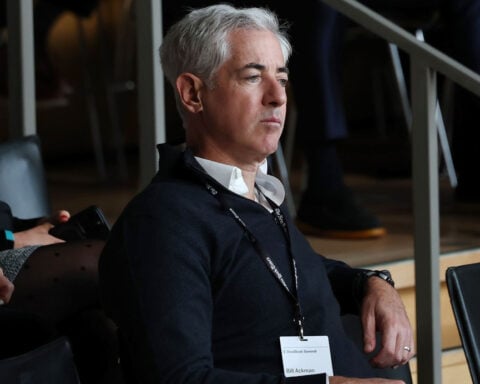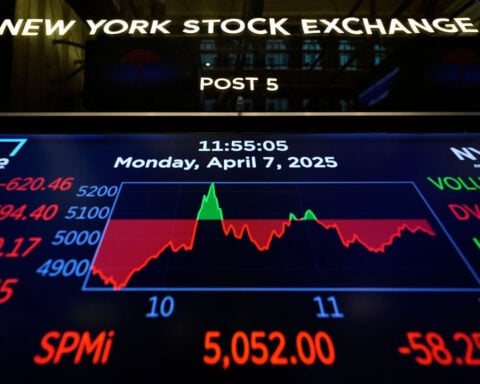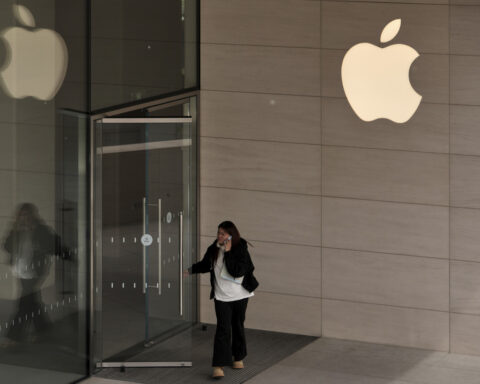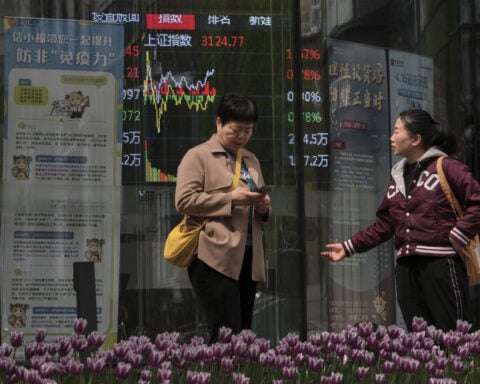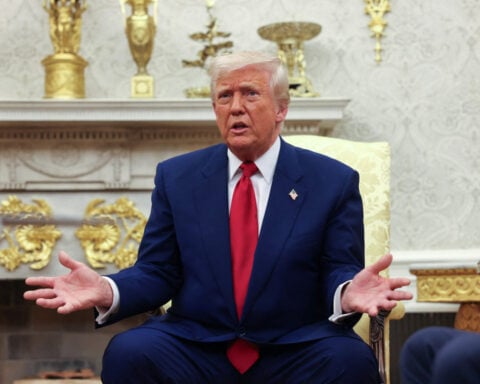The most obvious reasons for coal’s decline were the U.S. natural gas boom and the falling cost of renewable energy. But its decline was hastened by the hundreds of local organizations that protested coal projects, filed lawsuits against regulators and pushed financial institutions to disinvest from the sector. The presence of strong local movements may help explain the regional variation in coal’s fortunes.
Environmentalists also won some important battles against oil and gas pipelines, power plants and drilling projects. In a surprising number of cases, organizers defeated polluters through a combination of litigation, civil disobedience and other protests, and by pressuring banks, insurers and big investors.
In 2018, one pipeline CEO lamented the “rising tide of protests, litigation and vandalism” facing his industry, saying “the level of intensity has ramped up,” with “more opponents” who are “better organized.”
Green energy also expanded much faster than Trump and his allies would have liked, albeit not fast enough to avert ecological collapse. The U.S. wind energy sector grew more in Trump’s first term than under any other president, while solar capacity more than doubled. Research shows that this progress was due in part to the environmental movement’s organizing, particularly at the state and local levels.
As with immigration, Trump’s energy agenda divided both political and business elites. Some investors became reluctant to keep their money in the sector, and some even subsidized environmental activism. Judges and regulators didn’t always share Trump’s commitment to propping up fossil fuels. These tensions between the White House and business leaders created openings that climate activists could exploit.
Worker victories in unlikely places
Despite Trump self-promoting as a man of the people, his policies hurt workers in numerous ways – from his attack on workers’ rights to his regressive tax policies, which accelerated the upward redistribution of wealth.
Nonetheless, workers’ direct action on the job won meaningful victories. For example, educators across the country organized dozens of major strikes for better pay, more school funding and even against ICE. Workers in hotels, supermarkets and other private-sector industries also walked out. Ultimately, more U.S. workers went on strike in 2018 than in any year since 1986.
This happened not just in progressive strongholds but also in conservative states like West Virginia, Oklahoma and Kentucky. At least 35 of the educators’ strikes defied state laws denying workers the right to strike.
In addition to winning gains for workers, the strike wave apparently also worked against Republicans at election time by increasing political awareness and voter mobilization. The indirect impact on elections is a common side effect of labor militancy and mass protest.
Quiet acts of worker defiance also constrained Trump. The early months of the COVID-19 pandemic featured widespread resistance to policies that raised the risk of infection, particularly the lack of mask mandates.
Safety-conscious workers frequently disobeyed their employers, in ways seldom reflected in official strike data. Many customers steered clear of businesses where people were unmasked. These disruptions, and fears they might escalate, led businesses to lobby government for mask mandates.
This resistance surely saved many lives. With more coordination, it might have forced a decisive reorientation in how government and business responded to the virus.
Labor momentum could continue into Trump’s second term. Low unemployment, strong union finances and widespread support for unions offer opportunities for the labor movement.
Beyond marches
Progressive movements have no direct influence over Republicans in Washington. However, they have more potential influence over businesses, lower courts, regulators and state and local politicians.
Of these targets, business ultimately has the most power. Business will usually be able to constrain the administration if its profits are threatened. Trump and Elon Musk may be able to dismantle much of the federal government and ignore court orders, but it’s much harder for them to ignore major economic disruption.
While big marches can raise public consciousness and help activists connect, by themselves they will not block Trump and Musk. For that, the movement will need more disruptive forms of pressure. Building the capacity for that disruption will require sustained organizing in workplaces and communities.
Kevin A. Young does not work for, consult, own shares in or receive funding from any company or organization that would benefit from this article, and has disclosed no relevant affiliations beyond their academic appointment.
Source: The Conversation

 Trump has begun another trade war. Here's a timeline of how we got here
Trump has begun another trade war. Here's a timeline of how we got here
 Canada's leader laments lost friendship with US in town that sheltered stranded Americans after 9/11
Canada's leader laments lost friendship with US in town that sheltered stranded Americans after 9/11
 Chinese EV giant BYD's fourth-quarter profit leaps 73%
Chinese EV giant BYD's fourth-quarter profit leaps 73%
 You're an American in another land? Prepare to talk about the why and how of Trump 2.0
You're an American in another land? Prepare to talk about the why and how of Trump 2.0
 Chalk talk: Star power, top teams and No. 5 seeds headline the women's March Madness Sweet 16
Chalk talk: Star power, top teams and No. 5 seeds headline the women's March Madness Sweet 16
 Purdue returns to Sweet 16 with 76-62 win over McNeese in March Madness
Purdue returns to Sweet 16 with 76-62 win over McNeese in March Madness
